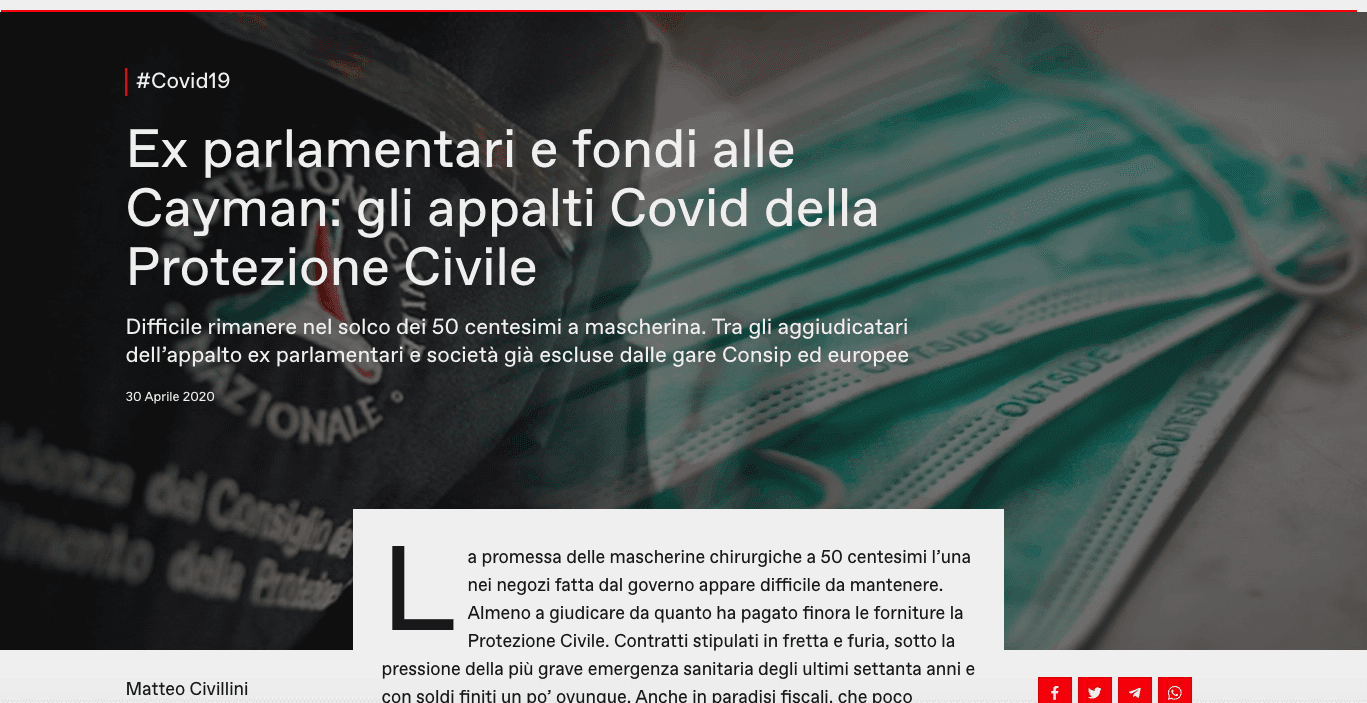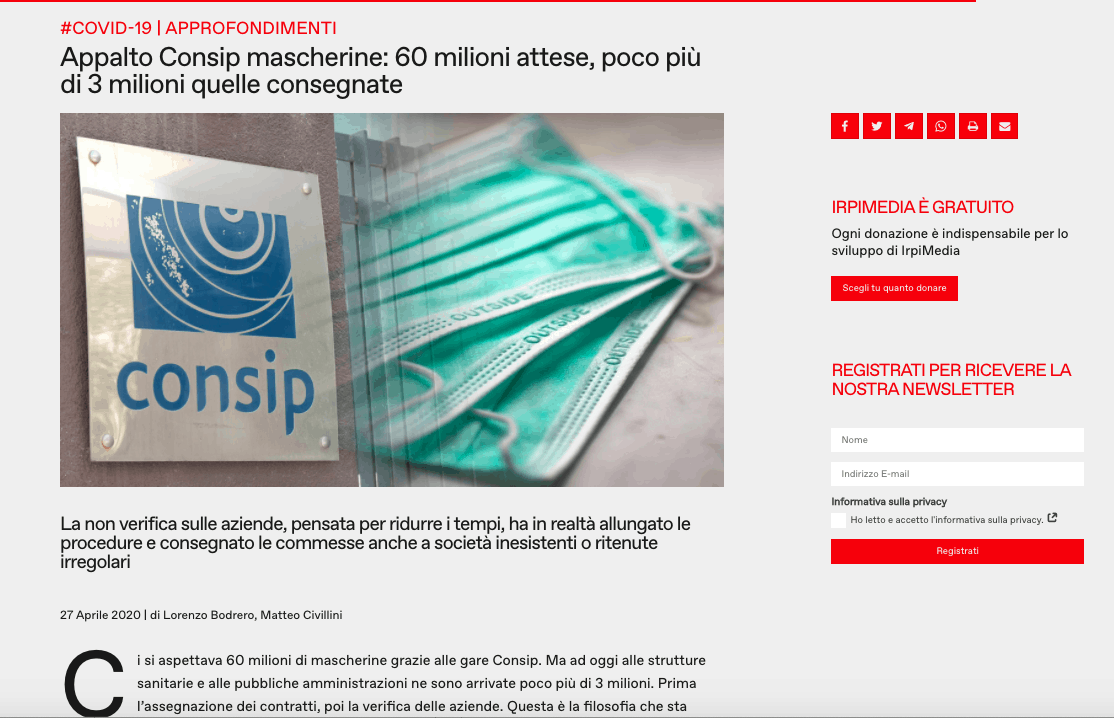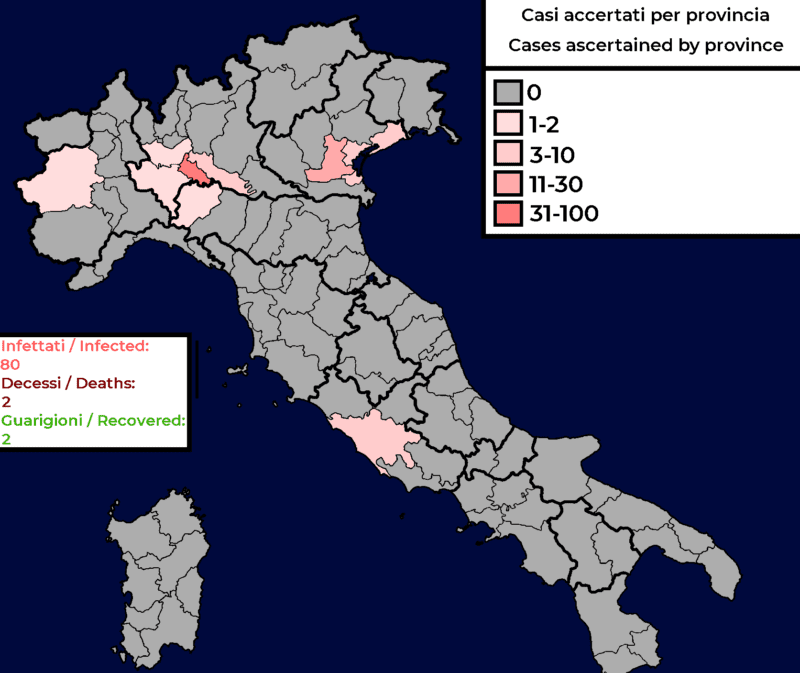Matteo Civillini is an Italian investigative journalist with the Investigative Reporting Project Italy (IRPIMedia) and a grantee of Internews’ Rapid Response Fund, established to support local journalism in the time of COVID-19.
Civillini’s focus is on investigating the procurement process of essential medical equipment and supplies by the Government of Italy as it responds to COVID-19. The investigation was carried out by IRPIMedia in collaboration with La Stampa, one of Italy’s most prominent daily newspapers.
“So far the reporting has raised the public’s awareness about how emergency powers risk wasting taxpayers’ money,” said Civillini. “In the most serious cases, it has sparked investigations by prosecutors, who will ascertain whether crimes have been committed. In the longer term, it will hopefully encourage public authorities to bolster the integrity of public procurement even, and especially, in times of crisis.”
In a matter of weeks, Civillini and another investigative reporter, Gianluca Paolucci, combed through 91 contracts awarded by the Italian Civil Protection agency to various firms, both in Italy and abroad. What they found and published in this article, confirms that deals were often executed without proper oversight, in the midst of a public health emergency. Along with predictably inflated prices for surgical face masks, Personal Protective Equipment (PPEs) and ventilators, Civillini also found that some payments were made to obscure banks with offshore accounts in the Cayman Islands.

Grant funding helped Civillini pursue these stories. “As a freelance investigative journalist in Italy, it is often difficult to make sure my work is financially rewarded in a fair and timely way. This grant funding is giving me the freedom and peace of mind to commit time and resources in order to carry out investigations in this time of crisis,” he said.
Civillini and Paolucci also looked at the variance of the prices advertised for essential equipment and the actual cost of some of the purchased products. For instance, although the the Italian government is not trying to impose a fixed price of Euro .50 for a surgical face mask, most of those the State bought itself ended up costing more. The final price went from Euro .60 all the way up to Euro 1.67, which was awarded to a Japanese company. The only firm that charged less per face mask was an Italian firm (Mediberg) specialized in producing medical supplies, which had stipulated the price during the peak of the pandemic.
In another article for this investigative series, Civillini documents that only 3 million out of the 60 million promised face masks were actually delivered by the central government’s procurement central. One contract shows the delivery of 140 ventilators for Euro 19,000 per piece. However, the manufacturer of those ventilators advertised them on the company website for a price ranging from Euro 9,900 to Euro 14,500. Civillini does acknowledge that at the height of the pandemic, the price of essential equipment shot up around the world. (Read another story by Civillini about masks being paid for but not delivered due to not meeting international standards: Masks: Italy pays but the goods remain stuck in Beijing)

Another report in Civillini’s series revealed that contracts were awarded to firms already been disqualified from previous bids in Italy and the European Union (EU). One company (Agmin Italy) was disqualified by the EU because it never delivered on a previous contract to Belorussia.
Last but not least, names of former Italian politicians appear on some of these contracts, which are now being investigated by prosecutors.
(Banner image: Map showing the spread of Coronavirus COVID-19 in Italy by province, updated to 22 February 2020. Credit: Dany Crash/CC)
